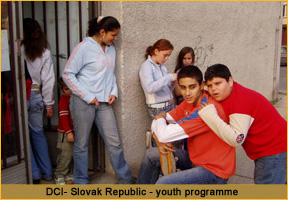|
In the
narrowest sense, the term �juvenile justice� refers to legislation,
norms and standards, procedures, mechanisms and provisions, institutions
and bodies specifically applicable to juvenile offenders.
According
to the United Nations Convention on the Rights of the Child, �States
Parties recognize the right of every child alleged
as, accused of, or recognized as having infringed the penal law to be
treated in a manner consistent with the promotion of the child's sense
of dignity and worth, which reinforces the child's respect for the human
rights and fundamental freedoms of others and which takes into account
the child's age and the desirability of promoting the child's
reintegration and the child's assuming a constructive role in society.�
UNCRC,
Article 40.1 |

|